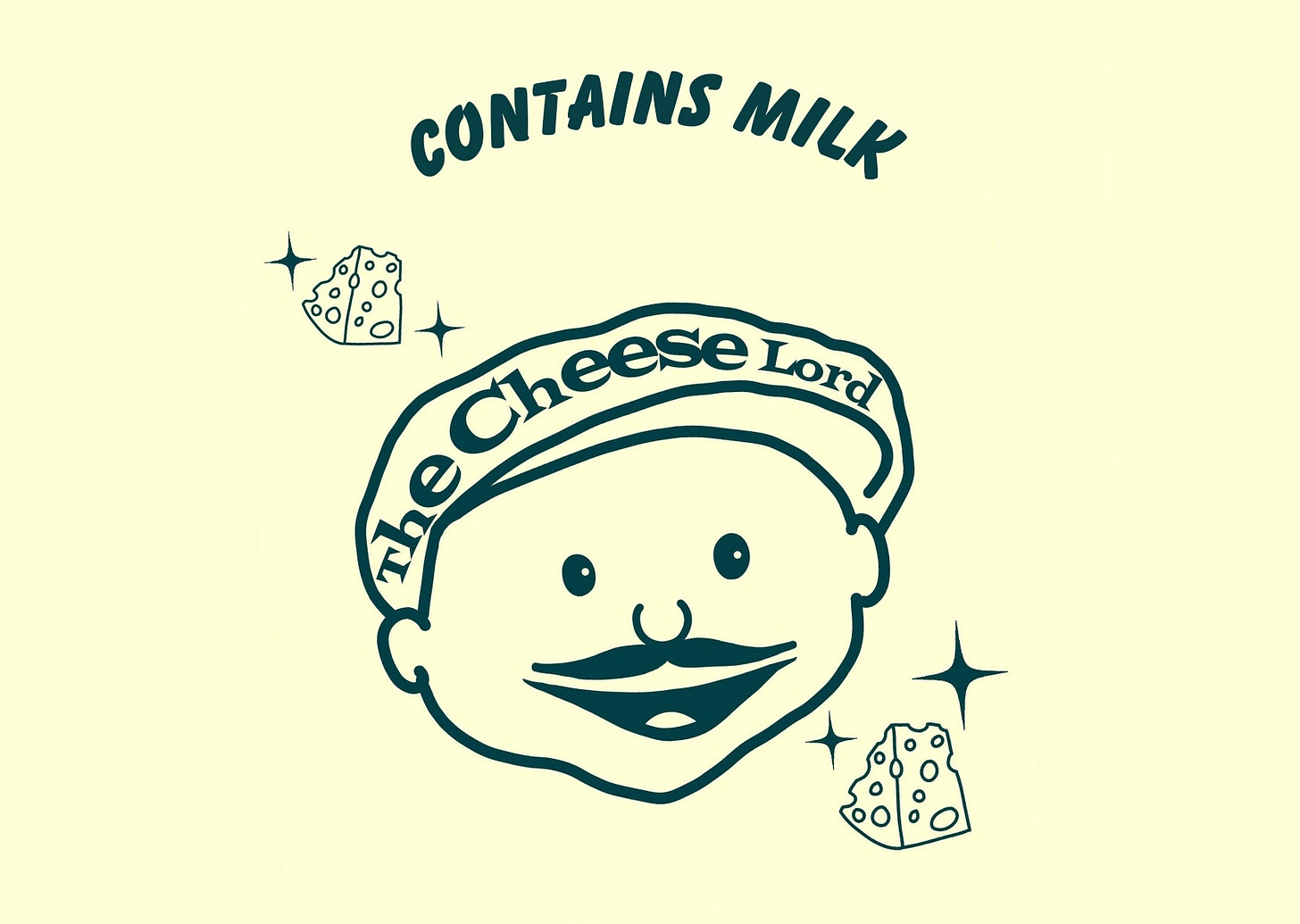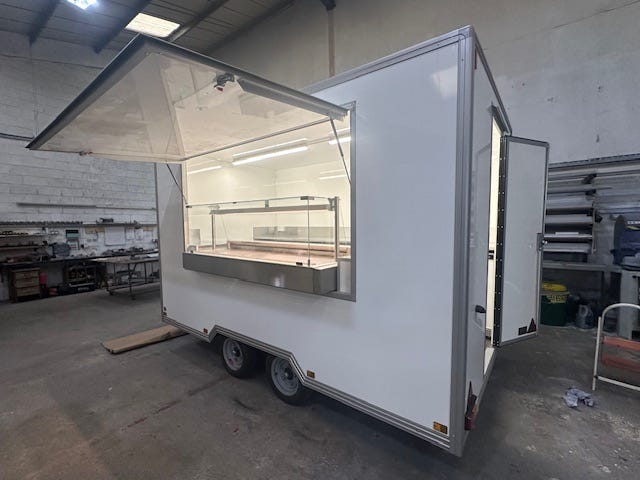The Cheese Lord cometh [WFJ #87]
A characterful and democratically-minded cheesemonger starts serving Shepton, Frome, and Devizes
Despite being the UK’s foremost cheese region, Somerset, unfortunately, doesn't really have the culture to go along with it. Nowhere near to the same degree of, say, parts of France, where you find citizens willingly dunking Camembert in their coffee, chèvre named after goat faeces, and roaming cheese vans serving one picturesque village square to the next.
What we do have, however, is the odd person with an active interest in bringing forward a little of that charm. “This was the original thought I had,” Martin Scott tells the WFJ. “I had some romances with some vintage French cheese trucks that would have cost me a fortune to get here,” he says, “and then probably would have broken down within a month of me having them.”
For three years, Martin worked for the now-defunct roving cheesemongers The Somerset Deli. Since the deli’s demise, and while harbouring a growing ambition to be “a local cheesemonger”, he started exploring the possibility of selling cheese from a van outside pubs and in church hall car parks in east Somerset, a few hours at a time.
After exhausting that and various other speculations, such as converting a jiffy van, Martin went and had made a bespoke 12-foot long trailer, kitted out to store and sell between 40 and 50 cheeses while at various marketplaces and other pitches in the area – to start with, Shepton Mallet on Fridays, over the border in Devizes on Thursdays, and Frome on Wednesdays and Saturdays.
Trading in and around his home of Frome, where he earned the moniker ‘Cheese Lord’, is very much intentional – one of the things Martin liked most about working on The Somerset Deli stall, which for 15 years travelled markets in half the county from Bridgwater to Frome, was how it helped him “become much more a part of the community” he lives in.
“That's why I'm doing it and that's kind of why I've gone local on the cheese as well. Because it feels symbiotic.”
As Martin points out, every one of the up to 50 cheeses he’ll have will be at least from the UK. Moreover, 70% will come from the South West. “I'm going to be stocking seven cheddars,” he says. “Six of them from Somerset – Gould’s Traditional, Pitchfork, Westcombe, Montgomery’s, Glastonbury Twanger, and Longman’s. The other one being Black Bomber.”

As much as the Cheese Lord’s trailer (affectionately named the Cheese Chariot) will be a living reflection of South West cheese culture, there will be the challenge of serving and satisfying marketgoers who possess a desire for the most true-to-its-name Parmigiano Reggiano, Manchego, or Brie de Meaux. Or – as Martin remembers this author’s (probably too frequent) requests and purchases from The Somerset Deli stall – Comté.
“If you want Comté from me, I'll say, well, I've not got that. But I have got a Cornish cheese that’s in the style of a mountain cheese, which is what Comté is. I'm going to stock Cornish Kern, which is to a similar recipe. Lincolnshire Poacher, as well, would be something that I might recommend to somebody who is after a mountain-style cheese.”
It’s not as if Martin’s flagrantly discriminatory to anything from the continent. Rather, he “loves” European cheese. “But this,” he adds, “fits with me and the customers I'm hoping to attract. Pecorino? Instead, I have Spenwood. Which isn't a local one. But it is British. It's a hard sheep's cheese, with a very similar feel to it. Vacherin? I've got Winslade, from Hampshire. And Baron Bigod from Suffolk – so you've got your Brie de Meaux there. Some things don't completely fit, and some things I'd say, go and buy [the actual thing]. But I would want to have that conversation and let people try those things before they make a decision as to whether or not they want it.”
Of starting out (which he does, in Frome, this Saturday) it does seem the Cheese Lord hasn’t exactly picked a bad time. Options are dwindling to buy good cheese, especially good continental cheese, in local highstreets. Perhaps you can begin to guess why – on top of enormous energy prices and spikes in other manufacturing costs, a Brexit-related rise in bureaucracy at customs has seriously impacted the cost of cheese off the shelf (one cheesemonger said my beloved Comté “increased in price by 18% since July 2021” due to new import levies).
Of course, sourcing within the same country negates import costs. But, it’s worth stating – these are costs which affect those importing in smaller batches more than they do retail giants. “That's another reason why I've decided not to stock continental cheeses,” Martin says. “Because you can go to a big Tesco and buy all the major continental cheeses for much less than I'd be able to sell them to you.”
Price at the till is clearly something Martin’s been thinking about. He mentions how, when buying cheese from a highstreet shop or deli, the overheads imposed on bricks-and-mortar businesses – and therefore their products – means paying customers are shelling out for simply being there. “I don't want people to have to pay just for having the experience of coming to a market and for having their cheese, and having a conversation about cheese,” Martin says.
With any luck, the Cheese Lord might start to democratise the wider world of cheese – much of that being ironically close to home – for locals otherwise used to reaching for the Cathedral City. The role of a good local cheesemonger, you might say, shouldn’t amount to anything less.
“I think a large percentage of the population don't believe that this [way of exploring cheese] is for them,” says Martin. “That think, ‘this is for the kind of person that is not me’. I want to make those connections and say, actually, this is for you. This is for everyone.”




